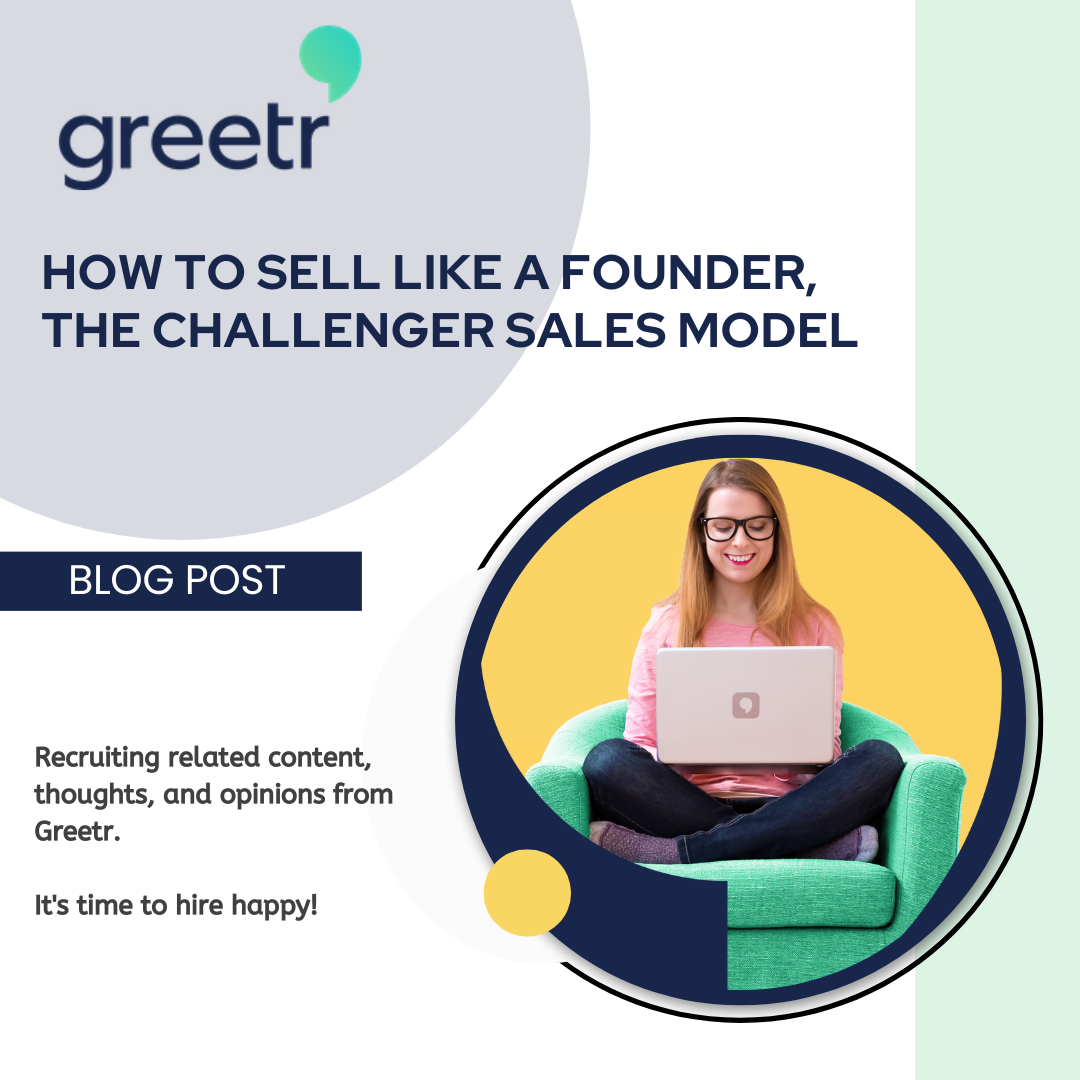How To Sell Like A Founder, Not A CEO
Selling is hard. If you're not a natural salesperson, it can be even harder. But as a founder, you can't afford to not be good at selling. Whether you're selling your product, your company, or yourself, you need to be able to sell at some level.
In this blog post, we'll give you some tips on how to sell like a founder, not a CEO. We cover topics like understanding your customer, knowing your product, addressing the problem you solve, and, most importantly, making the sale.
So, if you're open to ideas on how to sell, read on!
Understanding Your Customer
One of the most important things you need to do as a founder is to get to know your customer. Understanding who your customer, or your Ideal Customer Profile, is and what they need (what common problem your ICP has that you solve) will make it easier for you to make a sale. Plus, it will make your customer feel valued, understood, and appreciated.
To get to know your ICP, you should try to understand their pain points, buying patterns, and budget constraints. Market research and listening to your customers will help you make better sales pitches and close more deals.
Knowing your ICP (Ideal Customer Profile)
Defining your Ideal Customer Profile (ICP) involves identifying the characteristics of the customers who are most likely to benefit from your product or service and become your best customers. Here are the steps to defining your ICP:
- Identify who would make your best customers: Look at existing customers or key market trends to identify the potential customers who are most engaged with your brand and who would have the most positive experiences with your product or service.
- Analyze your ICP targets: Once you have identified the profile of your best customers, analyze their characteristics. This might include demographic information such as industry, hiring patterns, location, market conditions, and growth trends, or psychographic information such as their interests, values, and behaviors.
- Identify commonalities: Look for commonalities within your ICP. Do they share similar job titles or industries? Do they have similar pain points or challenges that your product or service addresses? Identifying these commonalities can help you refine your ICP.
- Develop a customer persona: Based on your analysis, create a customer persona that represents your ideal customer. This should include a detailed description of their demographics, psychographics, pain points, and buying behaviors.
- Refine your ICP: Use your customer persona to refine your ICP. This might involve tweaking your product or service offering, adjusting your marketing messaging, or targeting new customer segments that fit your ICP. Remember that defining your ICP is an ongoing process that requires continuous analysis and adjustment as your business evolves and your customer base changes.
Knowing Your Product
Another important aspect of selling as a founder is to understand your product. Knowing every detail about your product and how it can help your customers is essential. You should also be familiar with any industry trends, news, or updates related to your product. Knowing your product inside and out will make convincing potential customers to purchase more manageable.
Be able to clearly articulate how you are going to solve critical problems and outline how the customer can effectively use your product. A founder needs to be able not just to discuss features and benefits – but clearly paint a picture of how amazing the world will be for your client when they are a customer.
Staying Positive and Energetic
One of the most essential traits of a successful founder when speaking to a potential customer is positivity. Staying upbeat and motivated during sales is essential, even in the face of rejection or failure. Your ability to present an unshakeable belief in your product can differentiate between a closed deal and a missed opportunity.
Since most of the selling world happens in a virtual environment and we live in Zoom (or similar products), one way to change the dynamics of a sales call is to stand. It may sound silly - but it makes a huge difference!
Being Humble and Genuine
Being genuine and showing humility is a vital characteristic to have as a founder who is selling. Being genuine and humble allows you to stay grounded and be more approachable. It also gives you room to learn and improve. Above all, it helps build trust, which is essential when selling.
Humility isn’t easy to fake and is best demonstrated by showing genuine interest and respect for your potential customers. Ask questions about their businesses and industry, listen attentively and hear them, and use their answers to solve their problems.
Remember, people make business decisions for personal reasons, and your genuine approach to any discussion will help gain the trust of the audience you are speaking with.
Telling Stories and Building Relationships
Storytelling is an integral part of selling your product and is an essential aspect of success as a Founder in sales. Remember, as the Founder, you are your business's CEO, CMO, and Salesperson. Crafting a story that your prospects and customers can connect with and see real-life problems being solved will help you make a lasting impression, build relationships, and close deals.
The power of storytelling can often override any disagreements; your goal is to take your prospects and customers on an emotional journey with you. Describe a situation that they can relate to, then speak of the struggles faced when dealing with that situation and how you came up with a solution to solve the problem. Outline the solution's benefits and how certain features in your product or service helped your customers achieve their goals.
Share stories about your customers’ successes and how your product or service positively impacted them. Let your customers take the lead in storytelling and tell them how their stories would benefit others.
Being persistent
It can take 8-12 outreach attempts to create a discussion around the product. That’s right - persistence is an essential quality for a founder to possess. Taking ‘No’ for an answer isn’t the end of the line; it shouldn’t have to be.
Remember, you’re trying to build and maintain relationships. So, if someone’s not ready to invest yet, add them to a nurture campaign so you can follow up with them regularly. Nurture campaigns are regular updates on successes and problems you are solving. Sharing that with this group can quickly and effectively reopen doors, so keep their contact info, and even if they don’t see you solving a problem today, by sharing facts and wins, you can show them how you could help their business.
Solving Problems and Making The Sale
Once you've done your due diligence and understand your customer and product, it's time to make the sale. To do this, you should have a clear and concise pitch explaining your product's features and how it can help customers solve their problems. You must also showcase success stories or customer testimonials demonstrating why your product is the best choice. And finally, bring simple calls to action to the prospect that encourages customers to buy your product. Make it a no-brainer!
As a founder, you are in the best position to bring on new customers by taking the time to understand your customer and product.
If you found this helpful, follow along as we will discuss this topic in more detail soon.
 By
By


